Significant 2025 tax law changes are now in effect, potentially unlocking substantial savings for real estate investors, business owners, and high-income earners.
The newly passed “One Big Beautiful Bill” introduces sweeping reforms that include the return of 100% bonus depreciation, a 4x increase in the SALT deduction cap, and expanded tax breaks for retirees and small business owners.
These changes aren’t without controversy. The bill passed in a nail-biting 50-50 Senate vote, with Senator J.D. Vance casting the deciding vote. Critics argue it’s overly generous to some taxpayers over others, and it worsens the national deficit. But beyond the political noise, these provisions are very real, very actionable, and incredibly valuable if you know what they mean and how to use them. For real estate investors, business owners, and taxpayers who move proactively, they’re not just policy shifts; they’re serious tools for lowering tax liability, boosting cash flow, and accelerating long-term wealth.
Quick Overview: What Is It and What’s Inside the One Big Beautiful Bill Act
The One Big Beautiful Bill Act is a comprehensive tax reform package passed by the U.S. Senate in 2025. It revives and expands several major provisions originally introduced in the 2017 Tax Cuts and Jobs Act, including the return of 100% bonus depreciation, an increased SALT deduction cap, expanded Section 179 expensing, and new deductions for retirees.
We know some of these terms can feel complex or unfamiliar; that’s exactly why we’re here. So let’s break down what this could mean for you from a tax standpoint.
Tax Tip from IFC: If you're not constantly learning or getting new information from your CPA, it might be time to ask some serious questions or make a change. Tax laws evolve all the time, especially if you own a business, invest in real estate, or are proactively building wealth. Staying informed is no longer optional; it's essential.
Here are the tax updates under the new law that we are most excited about as CPAs for our clients:
100% Bonus Depreciation Reinstated
Qualified assets placed in service between January 20, 2025, and December 31, 2029, are now eligible for100% bonus depreciation—meaning you can fully deduct the cost of those assets in the year you buy them. This reverses the previous phase-out schedule and reinstates one of the most effective real estate and business tax strategies for enhancing cash flow, reducing taxable income, and accelerating reinvestment. We’ll break down how 100% bonus depreciation could impact your strategy in just a second.
SALT Deduction Cap Raised to $40,000
For individuals earning under $500,000, the state and local tax (SALT) deduction cap has increased from $10,000 to $40,000 under the new 2025 tax law.
What is the SALT deduction?
SALT stands for State and Local Taxes and this deduction lets you write off the amount you pay in state income taxes, property taxes, or sales taxes on your federal return.
Previously, the deduction was capped at $10,000, severely limiting tax relief for residents in high-tax states such as California, New York, New Jersey, and Illinois. With the new SALT cap increase to $40,000,qualifying taxpayers may now deduct a much larger portion of those state and local taxes, potentially lowering their federal tax bill by thousands.
Tax Tip from IFC: This is a major opportunity for high-income earners and property owners in high-tax areas to revisit their 2025 tax strategy and maximize deductions.
Section 179 Expansions
Section 179 of the tax code allows businesses to immediately deduct the full cost of qualifying equipment or property, instead of depreciating it over several years. This is different from bonus depreciation but is often used in combination with it.
With the new updates, businesses can now expense a larger amount of:
- Vehicles (such as SUVs and trucks used for business)
- Office furniture and fixtures
- Machinery and equipment
- Leasehold improvements and qualified real property
- Business technology (computers, servers, etc.)
The expanded limits mean you can write off more upfront, which reduces your taxable income and improves cash flow when you need it most, whether you’re scaling, renovating, or reinvesting.
These Section 179 changes are especially valuable for small-and mid-sized businesses planning large purchases in 2025. Just like bonus depreciation, the key is to ensure proper timing and documentation to claim the full benefit.
Tax Tip from IFC: You can often combine Section 179 and bonus depreciation to maximize your deduction on significant investments.
New Senior Tax Deduction
Under the 2025 tax reform, retirees earning under $75,000 annually now qualify for a new $6,000 federal tax deduction, a meaningful benefit that could significantly reduce or even eliminate taxes on Social Security income.
What does this mean?
Social Security benefits can become taxable once your income crosses a certain threshold. For many retirees with part-time income, rental properties, or retirement account distributions, that means paying taxes on money that was supposed to be a safety net.
The new deduction is designed to help lower- and middle-income seniors keep more of their retirement income, especially as living costs rise. If your adjusted gross income is below $75,000, this $6,000 deduction could bring your taxable income down far enough to avoid paying federal taxes on Social Security altogether.
This is especially important for:
- Retirees on fixed incomes
- Seniors drawing from IRAs or 401(k)s
- Households balancing rental or investment income with Social Security
Tax Tip from IFC: If you’re nearing retirement or already there, now is a great time to revisit your withdrawal strategy and income planning to see how this new deduction can work in your favor.
- Equipment and machinery
- Furniture and fixtures
- Building components (via cost segregation)
Instead of spreading deductions over decades, you can now write off the entire cost in the year the asset is placed in service, freeing up cash for reinvestment.
-
Timing Is Right
Now, let’s go back to talking about bonus depreciation for a second and why the timing of all this could be key for you as a business owner or real estate investor. We now know that bonus depreciation allows you to immediately write off the full cost of qualifying assets, which can significantly lower your taxable income and boost cash flow. But what if there's more to the strategy? There is, and it’s through cost segregation. Cost Segregation is a detailed study that breaks down your property into shorter-lived components, such as lighting, plumbing, or flooring, allowing you to accelerate deductions on those parts instead of depreciating the entire building over decades. It isn’t just a loophole or buzzword; it’s a real strategy that helps people save thousands of dollars every year, including many of our clients. By breaking down property components and accelerating depreciation, cost segregation enhances cash flow and reduces tax bills, making it one of the most effective real estate tax strategies available. With the year already halfway gone and the tax deadline approaching, wouldn’t it be great to implement some innovative strategies now that could save you thousands by year-end? Whether you’re purchasing equipment, investing in real estate, or upgrading your business assets, pairing cost segregation with 100% bonus depreciation can help you take full advantage of these tax rules before the window closes.
IFC Tax Tip: Planning ahead is everything. If your CPA isn’t actively planning with you, especially if you’re a business owner or real estate investor—it’s time to consider a proactive tax planning strategy seriously.
What You Should Do Right Now
To take advantage of these tax law changes in 2025, timing is key. Here’s what we recommend:
Real Estate Investors
- Schedule a cost segregation study before year-end Time
- your property purchases to qualify for 100% bonus depreciation Reevaluate
- depreciation schedules on property placed in service after January 20, 2025
Business Owners
- Plan major purchases now to align with new Section 179 and bonus depreciation rules
- Look into Amending past returns if eligible
High-Income Earners & Retiree
- Update tax strategies to reflect the SALT cap increase
- Run a retirement income analysis to leverage the new senior deduction
Let INVESTOR FRIENDLY CPA® Guide You Through the Opportunity
Tax strategies, such as bonus depreciation and SALT deductions, are powerful, but only when executed properly. Mistakes, poor timing, or DIY shortcuts can cost you thousands or trigger unwanted attention from the IRS.
At INVESTOR FRIENDLY CPA®, we specialize in proactive tax planning for:
- Real estate investors
- Business owners
- High-income earners
We’ll help you build a custom strategy, run cost segregation studies, and file amended returns if needed, all while keeping you fully compliant with the IRS.
Toll-Free:1-800-522-6091
Website: www.investorfriendlycpa.com
Email: clients@investorfriendlycpa.com
To learn more about Bonus Depreciation, click here to watch video!
Watch One Of Our Most Popular Videos: How To Pay Zero Taxes by Investing In Real Estate

-p-130x130q80.jpg)

.png)
.png)

.png)



.png)










